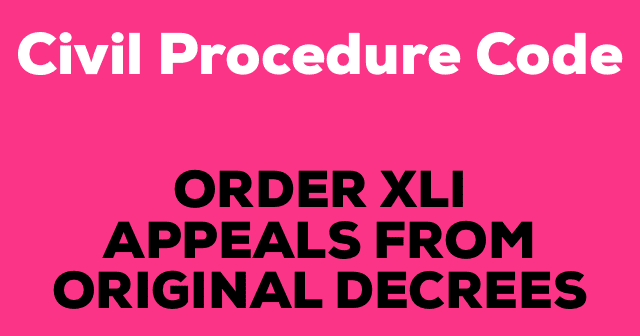Appeals From Original Decrees, which is performed by the Appellate Court, are preferred in a court which is Superior in Rank to the Court passing the decree. Appeal for such decrees may lie on an original decree passed Ex-Parte. No appeals will be placed if the decree is passed with the consent of the parties.
What is Appeal Memorandum
A Memorandum of Appeal is the set of grounds upon which a Judicial Examination is prayed for. It should contain concisely and under separate heads, the grounds of objection to the decree appealed against. The Memorandum is often need to be accompanied by a copy of the decree appealed from.
What is First Appeal
The expression appeal is generally understood as the judicial examination of the decision by a higher court of the decision of a lower court. It means removal of a cause from an Inferior Court to a superior court for the purpose of testing the soundness of the decision of the inferior court.
What is the Second Appeal
An appeal is a statutory and substantive right and not merely a legal right. The recourse to it can only be taken when it is expressly prescribed by the statute. Second Appeal: The second appeal has been defined under Section 100 of Code of Civil Procedure which reads as: “100.
Can a Consent Decree be Appealed
The parties also don’t have to deal with the uncertainty of the outcome of a trial. Of course, the consent decree can’t be given unless the parties can agree. Consent Decrees are binding on both parties because they agreed to it. The decree can’t be appealed unless there was.
Who Can File Appeal
An appeal is a process by which a Judgment/Order of a subordinate Court is challenged before its superior court. An appeal can be filed only by a person who has been party to the case before the subordinate Court.
Grounds for an Appeal
The most common reasons to appeal a case include legal grounds such as improper exclusion or admission of evidence, incorrect jury instructions, lack of sufficient evidence to support a finding of guilty, sentencing errors, false arrest, juror misconduct, prosecutorial misconduct, and ineffective assistance of counsel.

